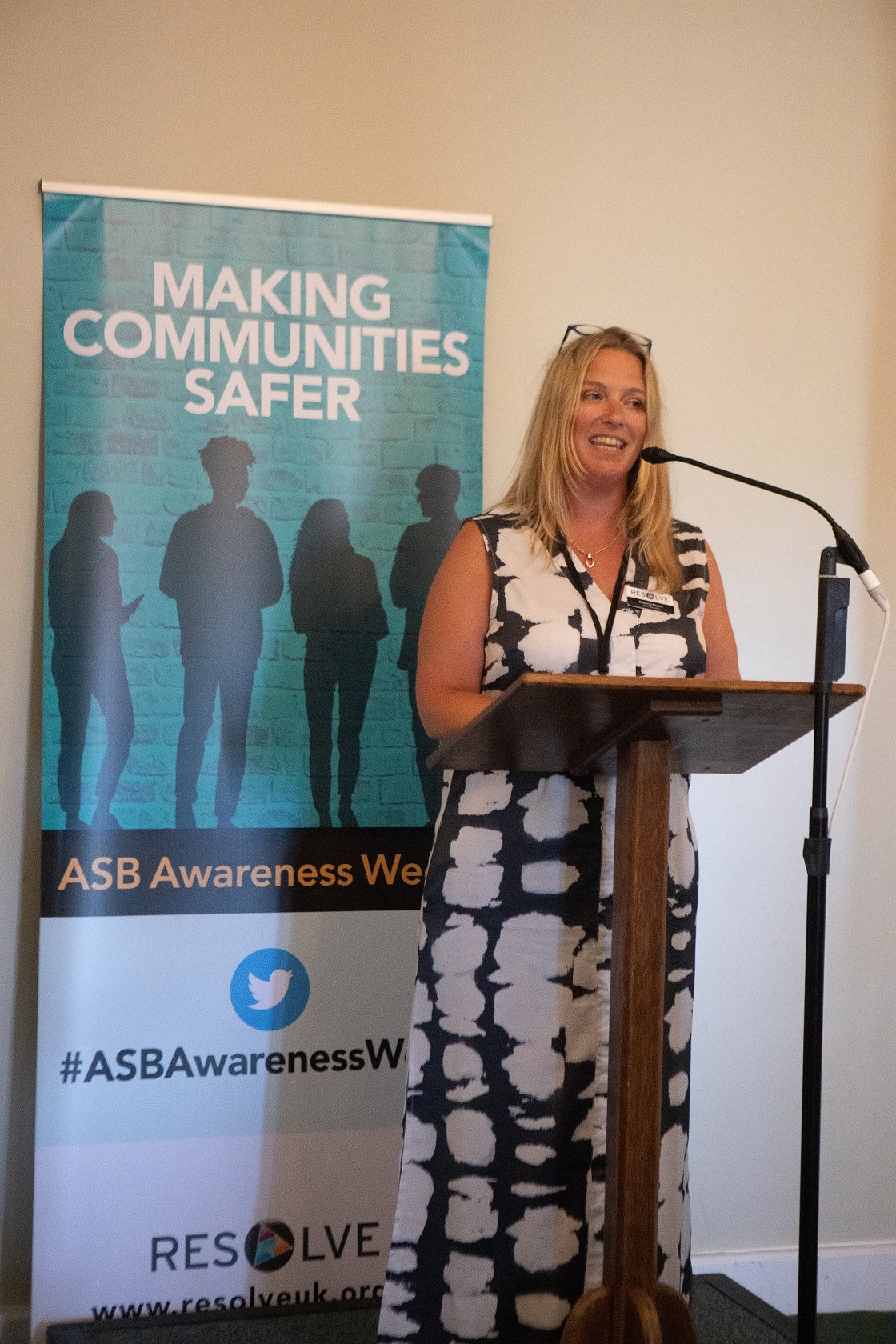
Almost 7.5 million people were victims of ASB in the last 3 years according to new research
Study also shows that the majority of incidents go unreported, as the UK marks ASB Awareness Week 2022
Despite almost 1 in 2 adults being personally impacted by anti-social behaviour, the majority of incidents go unreported according to new YouGov polling released today (20 July).
As the UK marks ASB Awareness Week (18-24 July) the survey, commissioned by community safety group Resolve, found that 36% said ASB has increased in their area in the last 3 years, compared to just 4% reporting a decrease.
14% of the UK’s 52.9m adult population said that they had been the victim of ASB in the last 3 years, with a further 32% saying that they witnessed the problem. Common concerns included vandalism, nuisance neighbours, intimidation, fly-tipping and issues relating to drug abuse.
Despite the devastating impact that it can have on communities, more than half of those who were victims of or witnessed ASB (53%) in the last 3 years did not report the issue to anyone. This suggests that the 1.7 million incidents ASB in England and Wales recorded by the police last year dramatically understate the scale of the problem.
When victims and witnesses were asked why they didn’t make a report, common responses included ‘didn’t think that anything would be done’ (51%), ‘didn’t think the issue was serious enough to report’ (44%) and ‘didn’t know how/who to report the ASB to’ (15%).
When asked what would make them more likely to report future incidents of ASB, respondents highlighted ‘a more visible police presence in my area’ (42%) and ‘clear communication about who and/or how to make a complaint’ (36%).
“Whatever the national statistics say, our research shows that the situation in communities is even worse than is being reported,” said Rebecca Bryant OBE, Chief Executive of Resolve.
“ASB is not low-level crime, and we have seen time and time again that it can rapidly escalate if it is not addressed. It is therefore extremely concerning to see that so many people who are impacted by ASB are not reporting incidents because they don’t think that they are serious enough.
“We need to get the message out that early intervention is crucial and that nationally, three quarters of ASB cases are resolved at first intervention.
“We also need to ensure that everyone who experiences ASB feels empowered to report the problem and understands the huge amount of support that available.”
The Home Office used the launch of ASB Awareness Week to publish a new set of Anti-Social Behaviour Principles, aimed at encouraging more people to report anti-social behaviour, improving partnership working between different agencies and protecting victims.
The Principles make it clear that victims should be encouraged to report ASB and can expect to be taken seriously when they do. They also call for much clearer pathways for reporting incidents, and ensure perpetrators have an opportunity to repair the harm they cause.
Rebecca Bryant OBE added:
“It is important that the challenge of ASB continues to be given the priority it needs so that people everywhere feel safe in their homes and communities.
“We were delighted to support the launch of the new ASB Principles, which will encourage the development of partnership approaches across communities to deal with the growing challenges around ASB.”
During ASB Awareness Week, Resolve is also working with partners including The Victims’ Commissioner for England and Wales in highlighting the need for victims to be empowered. Currently, victims of ASB are not included in the provisions of the Victims’ Code and are not mentioned in the government’s new Victims’ Bill.
The Victims’ Commissioner for England and Wales, Dame Vera Baird QC, said:
“Persistent anti-social behaviour can make victims’ lives a living nightmare. These victims need and deserve support, but they do not currently quality for even basic victim entitlements under the Victims’ Code. How do we expect to empower victims to come forward when so little support is forthcoming?
“Which is why it’s so disappointing that under its flagship Victims’ Bill, the government refused to address this disparity. Until victims of persistent anti-social behaviour are afforded the same victims’ rights and support as victims of crime, those suffering will continue to feel like second-class victims.
“It is up to the government to send a clear message to the public that anti-social behaviour is a priority. It could start by addressing this clear inequity in victim treatment.”
Running from July 18 to 24, ASB Awareness Week 2022 aims to encourage communities to come together to take a stand against ASB and understand how they can report and deal with issues where they live.
#ASBAwarenessWeek trended in the top 5 on Twitter on Monday and shows the hundreds of events all across the UK involving councils, police forces, housing associations, charities, community groups and sports clubs.





